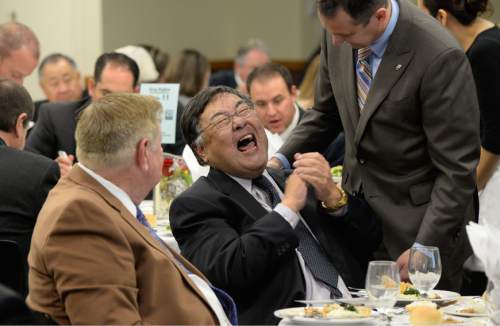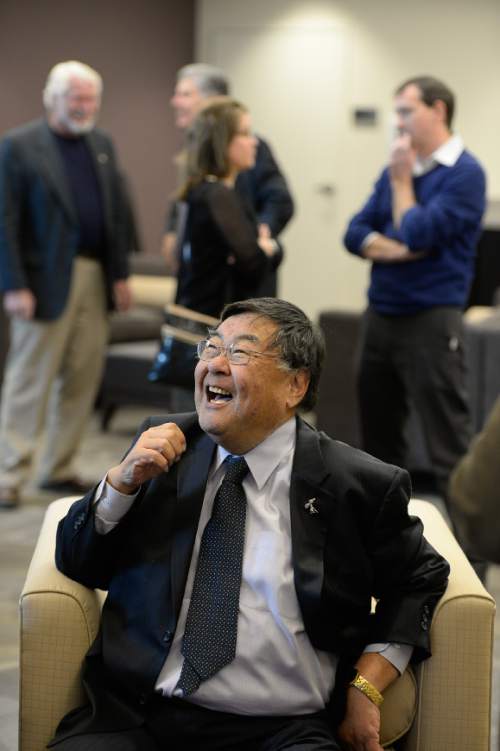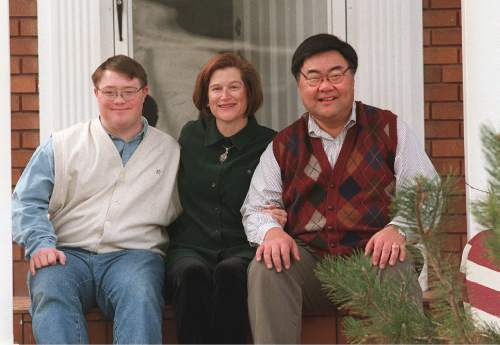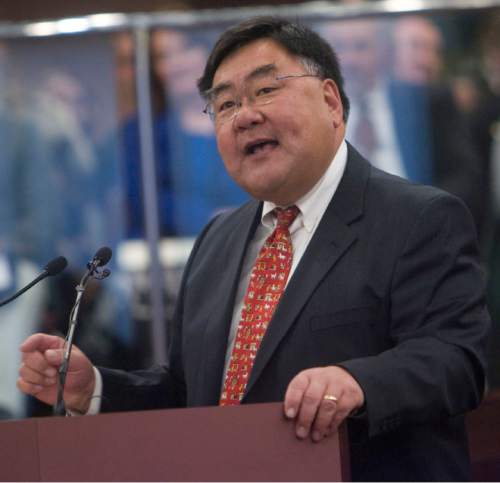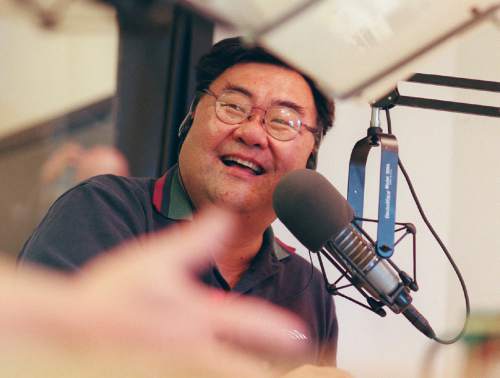This is an archived article that was published on sltrib.com in 2015, and information in the article may be outdated. It is provided only for personal research purposes and may not be reprinted.
Longtime Salt Lake County Clerk Sherrie Swensen was an office secretary for the Utah Democratic Party when her boss, then-party Chairman Randy Horiuchi, talked her into running for political office.
He accompanied her to the county clerk's office to file. While she was filling out her forms, the sitting county clerk walked over to Randy to ask who she was, commenting on her "Hollywood good looks."
"The good news," Randy told him, "is that she's running for office. So you'll be seeing a lot of her." Then, with that trademark wry grin, Randy added, "the bad news is she's running against you."
Randy always roared his infectious laugh when he told the story, one of hundreds he loved to share about his career as a Democratic politician and a Salt Lake County officeholder, first as a county commissioner and later as a County Council member.
He was a friend to thousands and, because of his roles as a county official and a party leader, those associations extended from coast to coast. He made new friends every time he attended a national conference or a political convention.
But, to me, the well-known public figure who died Thursday at age 61 from the effects of a stroke he suffered two years ago, he was a brother.
We called ourselves brothers from another mother and always laughed at the irony that I, the journalist, graduated from the University of Utah in political science and he, the politician, graduated from the U. in communication and journalism.
When I would be invited every year to sit at the Horiuchi family table at the annual fundraising banquet for the Japanese American Citizens League, I would volunteer to folks looking at me with puzzlement that "I was adopted."
Our lifelong friendship was sometimes problematic — for both of us. When I found out about and revealed secrets in the Democratic Party or in county government, Randy was always the suspected leaker because our friendship was well-known.
In fact, many of my sources felt comfortable tipping me off because they knew Randy would be blamed, so it was good cover for them.
Our friendship often led to accusations from other journalists that I couldn't cover anything Randy was involved with objectively.
We joked that we were like "The Fox and the Hound," the Disney flick about natural enemies being raised together as brothers then having to face the dilemma of their fate when the fox was released into the wild and the hound had to hunt him.
But we never figured out who was the fox and who was the hound.
I knew a different side of Randy Horiuchi from the well-liked, fun-to-be-around public figure.
He was known to be fiercely loyal to friends, sometimes to a fault.
Lesser known was his deep compassion and love for the needy or disabled.
Randy and his first wife, Theresa, adopted a multi-race infant named Shane and soon learned the boy was so disabled he would never get out of his crib. He couldn't hear or see, and his physical ailments ensured he never would walk.
They were talked into giving him back to the adoption agency, but they couldn't stand it and brought Shane back home after a few weeks. When he died, Randy's grief showed how much he loved and was devoted to that little guy who, because of Randy, was given a sheriff's posse escort from the funeral services to the cemetery.
His wife, Fran, had a Down syndrome son, Andrew, from a previous marriage. Randy not only became a father, but a best friend, taking Andrew to Jazz and Ute games. Once, they sat next to the Jazz bench, where the players and coaches treated Andrew like a teammate.
Karl Malone gave the young man his wrist bands when he exited the game. To me, Andrew's experiences with his stepdad showed Randy at his best.


